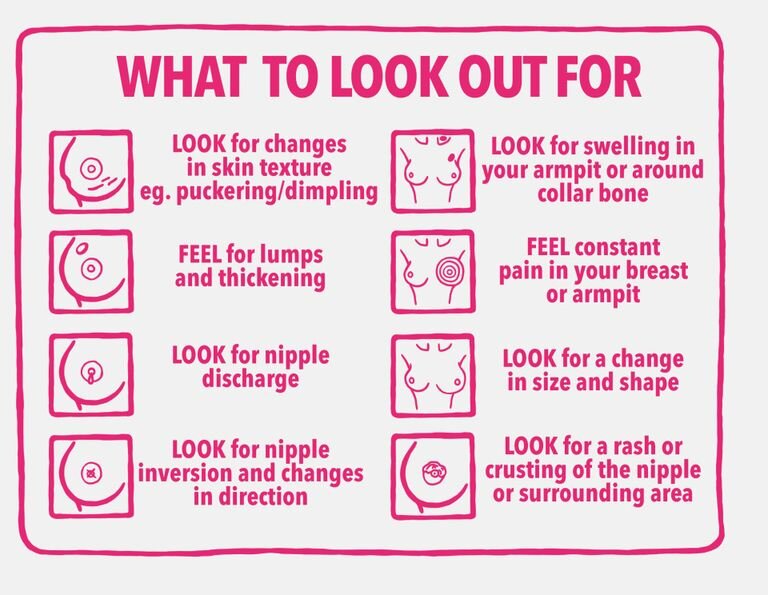This is the most important thing you can do for your body today
While many of us may know someone who has previously or is currently battling breast cancer, sometimes we need an additional reminder, amongst the busyness of our day-to-day lives, to put our health at the top of our agenda. And given the recent news of former Girls Aloud bandmate, Sarah Harding’s, battle with progressive breast cancer, now is the time to begin checking your breasts regularly.
Checking your boobs for any changes should be something you do without thinking, as automatic as washing your hair in the shower. Knowing the signs of breast cancer and detecting it early can be life-changing (and even life-saving), so make sure you know what you’re looking for and, more importantly, what to feel for when you’re checking those boobs.
Photography: Taisiia Shestopal at Unsplash
During their lifetime, 1 in 8 women will be affected by breast cancer; it is still the most commonly diagnosed cancer in women under 40. Research conducted by Coppafeel shows that younger women are more likely to check their boobs regularly than women in their late 20s and 30s. However almost everyone they spoke to thought that more awareness should be raised and that not enough people know how to check for the warning signs.
Over 4,700 people in Scotland are diagnosed with breast cancer every year, and of the 1,000 breast cancer-related deaths across the UK each month, all of those are caused by secondary breast cancer. Secondary breast cancer currently has no cure, so it’s really important to look out for the warning signs of breast cancer as early as possible. To read more about secondary breast cancer, read the November issue of Hood to discover the hugely inspiring Scottish women with the condition who are living each day with passion and fight.
The diagram below from Coppafeel shows just what to check for. It takes just five minutes, but could ultimately save your life - so we think it’s well worth making part of your daily routine. If you are experiencing any of the symptoms below, then you should seek advice from your doctor.
But, of course, checking yourself is just the first step. According to Worldwide Cancer Research, there’s lots of research still to be done when it comes to breast cancer: we need to know more about how breast cancer cells change when they spread to other parts of the body; we need to know how secondary breast cancers adapt to become resistant to therapy; and we need to understand more about the biology of cancer to work out how to stop the cancer spreading in the first place.
Worldwide Cancer Research are currently funding three research projects which aim to help us understand - and therefore reduce - breast cancer. To donate, please visit worldwidecancerresearch.org/donate
As well as helping to fund research, you can also help by supporting charities which do invaluable work both for the person suffering from cancer, and their families and loved ones. Make 2nds Count, Future Dreams, Trekstock, Look Good Feel Better and CoppaFeel are just a few fantastic charities to get you started.


